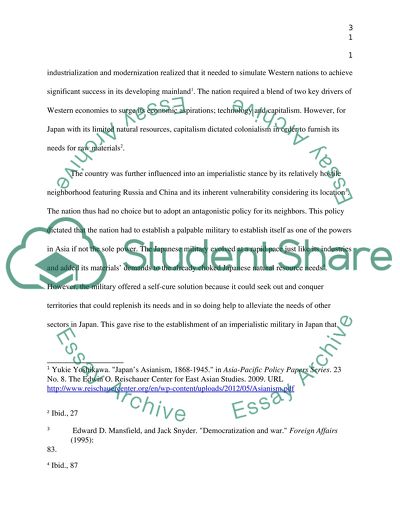Cite this document
(“Japans Expansionism in Asia Research Paper Example | Topics and Well Written Essays - 2500 words”, n.d.)
Retrieved from https://studentshare.org/history/1651942-japans-expansion-and-natural-resource-during-the-world-war
Retrieved from https://studentshare.org/history/1651942-japans-expansion-and-natural-resource-during-the-world-war
(Japans Expansionism in Asia Research Paper Example | Topics and Well Written Essays - 2500 Words)
https://studentshare.org/history/1651942-japans-expansion-and-natural-resource-during-the-world-war.
https://studentshare.org/history/1651942-japans-expansion-and-natural-resource-during-the-world-war.
“Japans Expansionism in Asia Research Paper Example | Topics and Well Written Essays - 2500 Words”, n.d. https://studentshare.org/history/1651942-japans-expansion-and-natural-resource-during-the-world-war.


